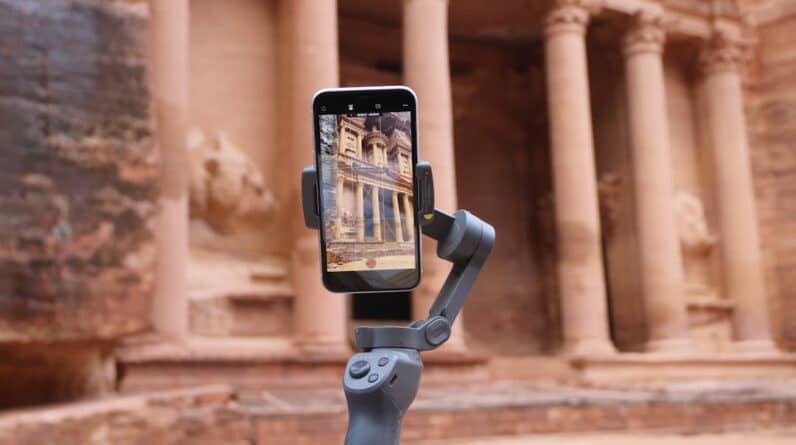As you navigate the ever-evolving landscape of entertainment, you may have noticed the increasing presence of artificial intelligence (AI) in various forms. From streaming services to video games, AI is reshaping how content is created, consumed, and experienced. This technological revolution is not just a passing trend; it represents a fundamental shift in the industry that is enhancing creativity and efficiency.
As you delve deeper into this topic, you will discover how AI is not merely a tool but a transformative force that is redefining the boundaries of entertainment. The integration of AI into entertainment is a fascinating phenomenon that has sparked both excitement and debate. On one hand, it offers unprecedented opportunities for innovation and personalization; on the other, it raises questions about the implications for human creativity and employment.
As you explore the various facets of AI in entertainment, you will gain insights into how this technology is influencing everything from content creation to audience engagement. The journey ahead will reveal the myriad ways in which AI is not only changing the industry but also enhancing your experience as a consumer.
Key Takeaways
- AI is transforming the entertainment industry by revolutionizing content creation, personalized content recommendations, scriptwriting, storytelling, film and TV production, music and audio production, gaming, and virtual reality.
- AI is revolutionizing content creation by automating tasks such as video editing, color correction, and special effects, leading to more efficient and cost-effective production processes.
- Personalized content recommendations powered by AI algorithms are enhancing user experience by providing tailored suggestions based on individual preferences and viewing habits.
- AI is being used in scriptwriting and storytelling to analyze audience preferences, predict trends, and generate engaging narratives, leading to more compelling and successful content.
- AI is impacting film and TV production by optimizing scheduling, budgeting, and logistics, as well as enhancing visual effects and post-production processes.
How AI is Revolutionizing Content Creation
Unlocking New Creative Possibilities
This capability allows creators to experiment with new ideas and formats, pushing the boundaries of what is possible in storytelling and artistic expression. Moreover, AI tools are streamlining the creative process, enabling artists and writers to focus on their core strengths.
Augmenting Human Creativity
For instance, AI can assist in brainstorming ideas or generating outlines, freeing up your time to refine and polish your work. This collaboration between human creativity and machine efficiency fosters an environment where innovation thrives.
A New Era of Content Creation
As you witness this evolution, you may begin to appreciate how AI is not replacing artists but rather augmenting their capabilities, leading to richer and more diverse content.
Personalized Content Recommendations with AI

One of the most significant impacts of AI in entertainment is its ability to provide personalized content recommendations. As you scroll through your favorite streaming platform or social media feed, you may notice how algorithms curate suggestions tailored specifically to your tastes. By analyzing your viewing history, preferences, and even the behavior of similar users, AI can predict what you might enjoy next.
This level of personalization enhances your experience, making it easier for you to discover new shows, movies, or music that align with your interests. The implications of personalized recommendations extend beyond mere convenience; they also shape the way content is produced. As creators become aware of audience preferences driven by AI insights, they may tailor their projects to meet these demands.
This feedback loop creates a dynamic relationship between consumers and creators, where your preferences directly influence the types of stories being told. While this can lead to more engaging content, it also raises questions about the potential for homogenization in entertainment, as creators may prioritize popular trends over innovative storytelling.
AI in Scriptwriting and Storytelling
The realm of scriptwriting and storytelling has also been significantly impacted by AI technologies. You might be surprised to learn that some screenwriters are now using AI tools to assist in crafting narratives. These tools can analyze successful scripts and identify common themes, structures, and character arcs that resonate with audiences.
By providing insights into what makes a compelling story, AI can help writers refine their scripts and enhance their storytelling techniques. However, the use of AI in scriptwriting does not come without its challenges. As you consider the implications of machine-generated narratives, you may wonder about the authenticity and emotional depth of stories created with AI assistance.
While algorithms can identify patterns and trends, they may lack the nuanced understanding of human experiences that only a writer can convey. This raises important questions about the role of human creativity in storytelling and whether AI can truly capture the essence of what makes a story resonate on a deeper level.
AI in Film and TV Production
In film and television production, AI is streamlining processes and enhancing efficiency in ways that were previously unimaginable. You may have noticed how AI technologies are being employed in various stages of production, from pre-visualization to post-production editing. For instance, AI can assist in casting decisions by analyzing actor performances and audience reactions to previous films.
This data-driven approach helps producers make informed choices that align with audience expectations. Additionally, AI is revolutionizing visual effects (VFX) by automating labor-intensive tasks such as rotoscoping and motion tracking. As a viewer, you benefit from more seamless and realistic visual experiences without being aware of the behind-the-scenes innovations that made them possible.
Furthermore, AI-driven analytics can provide real-time feedback during test screenings, allowing filmmakers to make adjustments based on audience reactions before finalizing their projects. This integration of technology not only enhances production quality but also ensures that the final product resonates with viewers like you.
The Impact of AI on Music and Audio Production

The music industry has also embraced AI as a transformative force in audio production. You may have encountered AI-generated music or seen artists collaborating with algorithms to create unique sounds. By analyzing vast libraries of existing music, AI can generate compositions that mimic specific genres or styles while introducing innovative elements that push creative boundaries.
This fusion of technology and artistry opens up new avenues for musicians like yourself to explore. Moreover, AI tools are enhancing the music production process by automating tasks such as mixing and mastering. As an artist or producer, you might find that these tools allow you to focus on your creative vision rather than getting bogged down by technical details.
Additionally, AI-driven analytics can help identify trends in listener preferences, enabling musicians to tailor their work to meet audience demands more effectively. While some may argue that this reliance on technology could dilute artistic expression, others see it as an opportunity for collaboration that enriches the musical landscape.
AI in Gaming and Virtual Reality
In the gaming industry, AI is playing a pivotal role in creating immersive experiences that captivate players like yourself. From non-player character (NPC) behavior to dynamic storytelling elements, AI enhances gameplay by making virtual worlds feel more alive and responsive. You may have noticed how NPCs now exhibit more realistic behaviors and interactions, thanks to advanced algorithms that simulate human-like decision-making processes.
Furthermore, AI is revolutionizing virtual reality (VR) experiences by adapting environments based on player actions and preferences. As you engage with VR content, you might find that AI tailors challenges or narratives to suit your skill level or interests, creating a more personalized gaming experience. This adaptability not only enhances enjoyment but also encourages players to explore new aspects of gameplay they might not have considered otherwise.
The integration of AI into gaming represents a significant leap forward in creating engaging narratives and interactive environments that resonate with players on multiple levels.
The Future of AI in Entertainment
As you look ahead to the future of AI in entertainment, it becomes clear that this technology will continue to evolve and shape the industry in profound ways. The potential for further innovation is vast; as algorithms become more sophisticated and data collection methods improve, we can expect even greater personalization and interactivity in our entertainment experiences. You may find yourself engaging with content that feels uniquely tailored to your preferences and interests like never before.
However, this future also raises important ethical considerations regarding creativity, authorship, and the role of human artists in an increasingly automated landscape. As you ponder these questions, it’s essential to recognize that while AI can enhance creativity and efficiency, it cannot replace the human touch that brings stories to life. The challenge will be finding a balance between leveraging technology for innovation while preserving the authenticity and emotional depth that define great art.
In conclusion, as you explore the intersection of AI and entertainment, you will witness a dynamic landscape filled with opportunities for creativity and engagement. From content creation to personalized recommendations and immersive experiences in gaming and music, AI is reshaping how we interact with art and storytelling. Embracing this technological evolution will not only enhance your experience as a consumer but also inspire new forms of creativity that push the boundaries of what entertainment can be.
Changing the Way We Consume Content: AI in Entertainment explores the impact of artificial intelligence on the entertainment industry. For further insight into the benefits and drawbacks of AI technology, readers may be interested in the article What Are Pros and Cons of AI?. This article delves into the various advantages and challenges associated with the use of AI in different sectors, providing a comprehensive overview of the topic.
FAQs
What is AI in entertainment?
AI in entertainment refers to the use of artificial intelligence technology in the creation, distribution, and consumption of entertainment content such as movies, music, video games, and more.
How is AI changing the way we consume content in entertainment?
AI is changing the way we consume content in entertainment by personalizing recommendations, creating immersive experiences, improving content discovery, and enhancing the overall entertainment experience for consumers.
What are some examples of AI in entertainment?
Examples of AI in entertainment include recommendation algorithms on streaming platforms, AI-generated music and art, virtual reality experiences, and AI-powered content creation tools for filmmakers and game developers.
What are the benefits of AI in entertainment?
The benefits of AI in entertainment include improved content discovery, personalized recommendations, enhanced creativity and innovation, cost savings in content production, and the ability to create more immersive and interactive experiences for consumers.
What are the potential drawbacks of AI in entertainment?
Potential drawbacks of AI in entertainment include concerns about data privacy, the potential for algorithmic bias in content recommendations, and the impact of AI on traditional creative roles in the entertainment industry.






